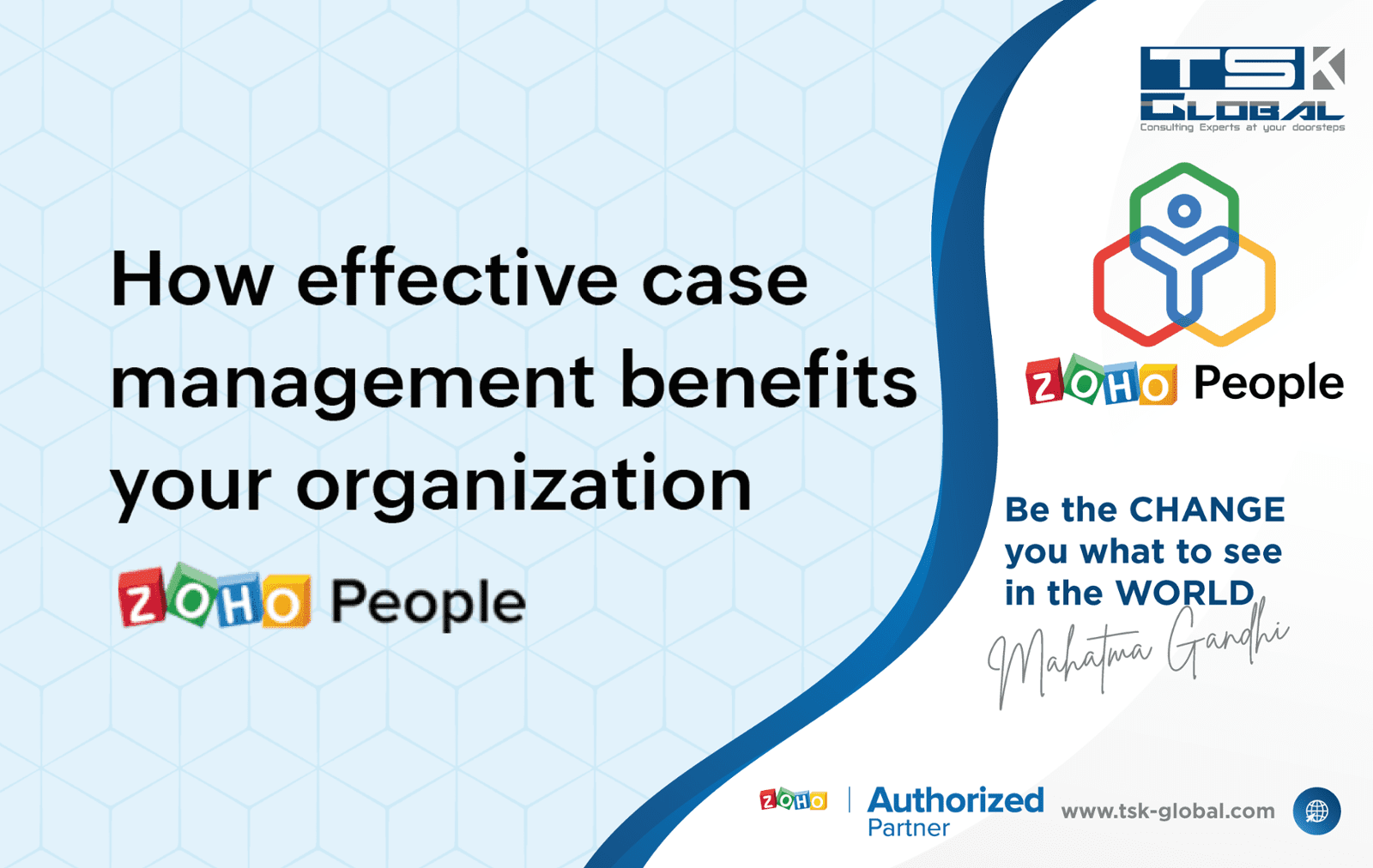4 reasons why you need an HR case management system

As an employee of HR, you are probably used to receiving numerous questions from your employees ranging from time balances, vacation accrual, and payroll to timesheets, compensation, and benefits. Manually managing these inquiries via paper documents or emails is no longer an option in today's telecommuting era if you want to keep the employee experience high. New employees may not know whom to contact about a particular issue. Not to mention, when there is an overabundance of requests, there is an increased likelihood of overlooking important issues. Over time, this can leave your employees dissatisfied and contribute to a sense of resentment among your workforce.
Nowadays, companies prevent this by using HR software, which has a dedicated case management system. This way, the flow of employee questions and inquiries can be streamlined, allowing you and your HR team to resolve more issues in less time. If you don't already have an HR case management system in place at your company, here are four compelling reasons why you should:
Centralizes and simplifies employee inquiries
Answering questions or responding to employee inquiries is fairly easy with a case management system. All your employees have to do is select the category their question relates to and submit their request. They can also attach any relevant documents directly to the request. Once the request is submitted, you can choose a deadline and assign an agent to the case who will be responsible for resolving the concern. Since the entire process is automated, your agents don't have to fill out tedious paper forms or send emails back and forth about their requests. Each request is recorded and neatly categorized under separate columns so you can't miss anything.
Supports better communication
Organized case management supports transparency and open communication in your organization. This keeps you, your staff, and your HR team on the same page. For example, your staff can track the status of their requests without having to constantly check in with a third party. Everyone involved in a particular request or question is notified when an action is initiated or completed. This way, the process moves faster while still following the appropriate approval paths. A case management system also allows for commenting so that staff and case managers can discuss without having to use external communication channels. They can refer back to these comments as they resolve the case, and if other agents need to jump in to resolve an issue, they can also see all the contextual information they need to resolve the issue quickly. Finally, a case management system allows employees to provide feedback on how their request was handled by agents, which helps your organization improve its approaches to case resolution over time.
Allows you to add FAQs
Some questions will be much more common than others. A case management system allows you to add an unlimited number of frequently asked questions to each category under the module, which reduces the number of queries that need an agent's attention and saves you from answering the same question over and over again. These FAQs serve as a central knowledge base that agents can refer to before submitting a query. FAQ Entries can be added, edited, and deleted by you and your staff with appropriate permissions. Documents or policies that support the FAQs can also be added to the case management system to make the guide even clearer.
Provides access to intuitive reports
If you don't have clarity on the number of inbound requests or the status of your existing requests, the entire process can become overwhelming for your team. A case management system provides access to several useful and informative reports that get to the heart of the status of your inquiries and requests. Some of the common reports in the case management system give the status of cases, total feedback received, number of escalated reports, and more. This can be critical to improving service quality and closing inquiries on time.
Integrating with HR software
With a case management system, you can resolve employee issues and concerns easily, effectively, and promptly. Your employees will feel more respected and valued when you take their concerns seriously and help them more quickly. When the case management system is integrated with your HR software, it makes the process even easier because most of the HR processes on which the questions are based exist in a single system.
